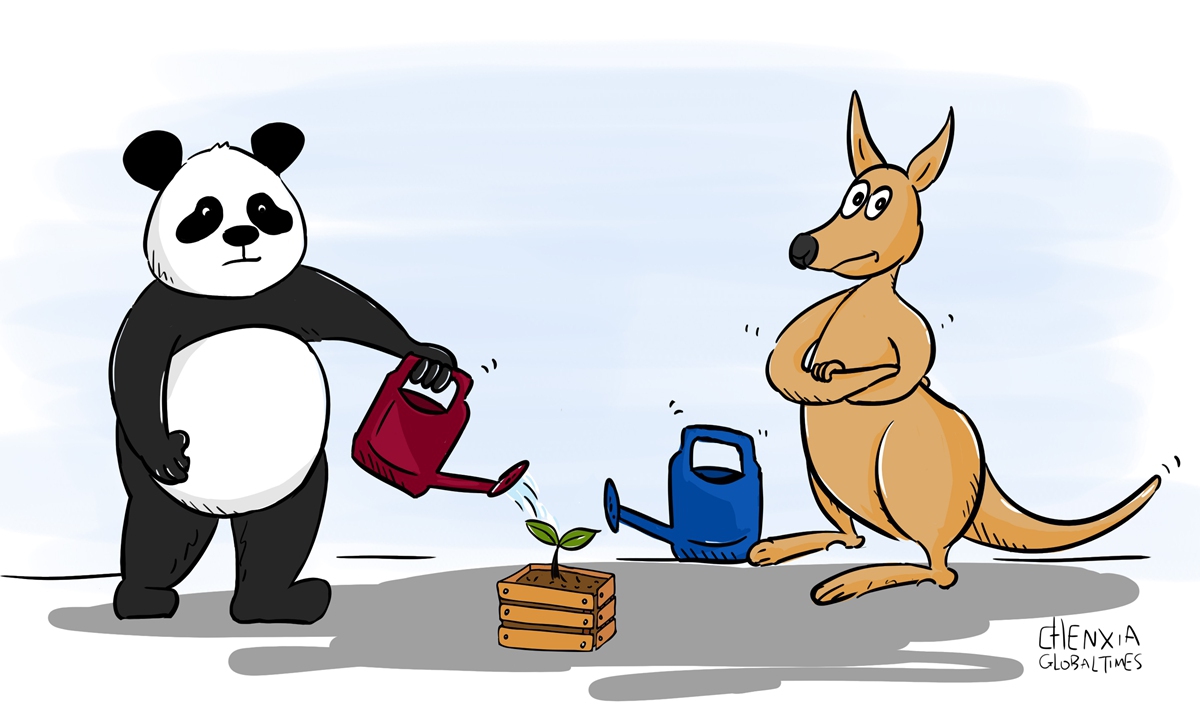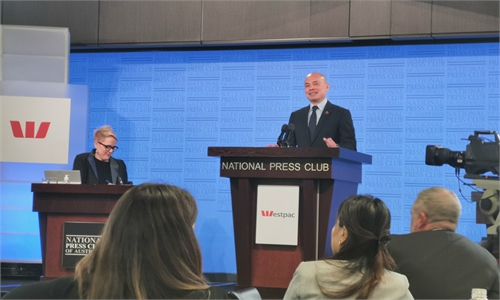
Illustration: Chen Xia/GT
If there is anything more frustrating for Chinese and Australian business circles than the deteriorating relationship between the two countries, then it is the lack of hope that the shadow over bilateral ties would dissipate in the short term. This is because the Australian economy is beginning to feel the impact of the escalating tensions with its largest trading partner.
Preliminary figures from the Australian Bureau of Statistics showed recently that its exports to China declined 17 percent in July, with metalliferous ores exports down 12 percent.
The figures indicated that trade is feeling the impact as China-Australia tensions continue to spiral down. The unpleasant political climate has prompted Chinese companies to diversify the sourcing of goods they used to buy from Australia.
For instance, some Panamax vessels are thought to have been booked for shipment from France to China in the coming months, according to Reuters. China, the world's biggest iron ore consumer, also reportedly opened four new ports catering for super-sized iron ore carriers from Brazil, a move that observers said will help reduce its dependence on Australian supply.
Bilateral trade ties will cool continuously if there is no fundamental change in tensions. After a prolonged slowdown, it will be very difficult to restore the relationship to the previous level, meaning that the blow to the Australian economy will be far-reaching and irreversible.
Take education as an example. Foreign students contribute about $25 billion a year to the Australian universities and its economy, with Chinese students accounting for about one-third of the total. Even before China issued a warning to Chinese students studying in Australia about racial discrimination, there was a report that estimated Australian universities will lose more than 21,000 jobs in the coming months, severely affecting their research capacity. It is possible that the loss of Chinese students could have a long-term impact on the country's research capacity.
Usually, it takes time for political rivalry to have substantial economic consequences. Sometimes, if a rift between two countries is short, the economic impact will be limited or even go unnoticed.
Yet, continued moves by the Australian side have raised concern over the longer-term outlook, as there is no sign of easing. This week, China's Mengniu Dairy gave up its bid for an Australian brand after media reports suggested that the Morrison government would block the deal. Moreover, potential legislation pushed by the Morrison government will reportedly put the state of Victoria's Belt and Road Initiative agreement at great risk.
If bilateral relations fall into a long-term downward spiral, the impact will be increasingly irreversible. There is every reason to call for efforts to bring the bilateral relationship out of the shadows instead of testing Australia's economic bottom line.



